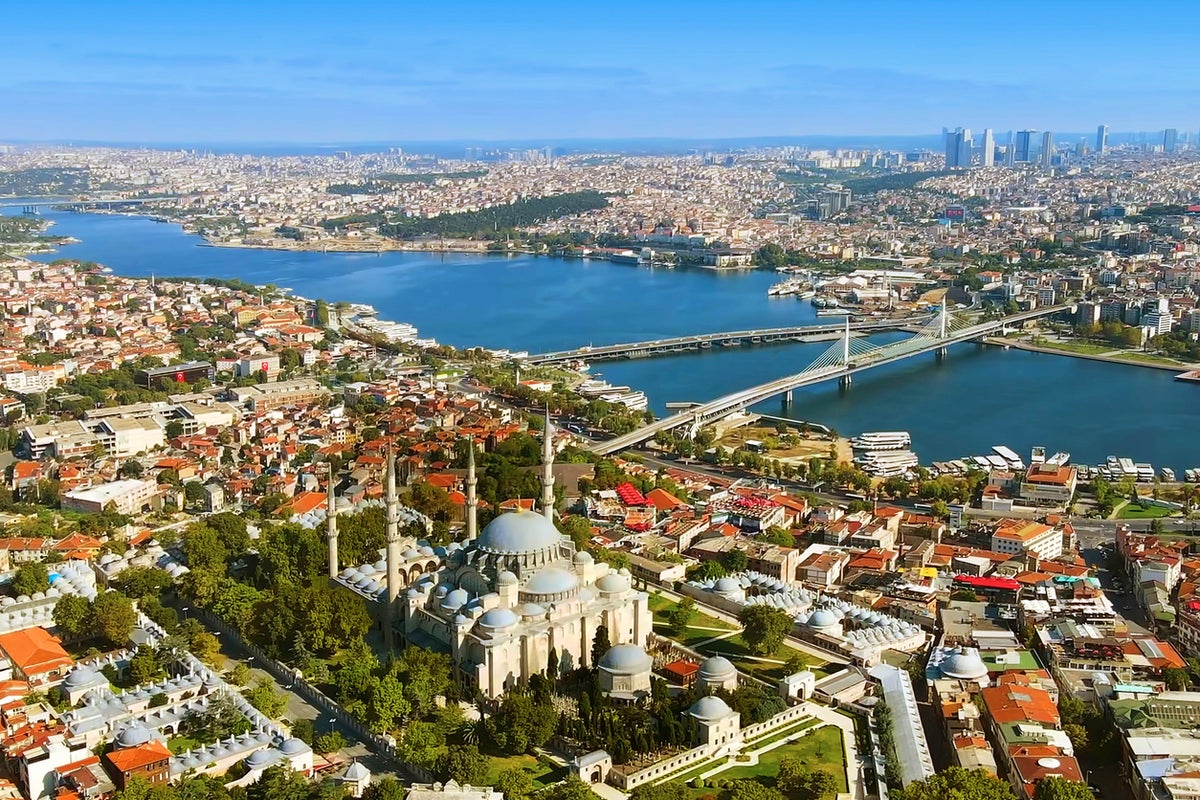
“For me, a holiday isn’t about spending 10 days staying in the same location and sitting on a beach”: so says Bram Houtenbos, a financial services executive from south London.
The 38-year-old is eagerly making final preparations for the inaugural Trans-European Race from London to Istanbul, using only public transport and walking. The first to arrive beside the Bosphorus will win a prize worth £2,000.
Unlike the BBC’s popular Race Across the World series, which challenges participants to reach a specific destination using public transport with a set limit and without mobile phones, travel budgets can be unlimited. Mobiles are not merely allowed: they are likely to be essential for on-the-move organisation.
“It’s going to attract self-selecting nerds,” Mr Houtenbos cheerfully accepts. “My wife is very happy for me to be going on this journey alone.”
The race starts from Trafalgar Square in the centre of the capital at 10am on Saturday, 5 August. It is organised by the Wigan-based adventure company, Lupine Travel. The company’s James Finnerty is race director.
Trial run: Adventurer Bram Houtenbos on a rail trip through the Netherlands— (Bram Houtenbos)
“The idea has really had a better response than expected,” he says. “We initially hoped for 30-50 people but ended up having to limit it at 100 for the first year.
“There’s already 100-plus people on the waiting list for the launch of our 2024 race later this month. We plan to allow 250 people for that one.”
The inaugural race has a hurdle to prevent contestants setting up everything ahead of time. When the competition was launched in May 2023, entrants were told a first checkpoint will be in Paris, to enable them to source public transport to the French capital at reasonable prices.
They will also be required to register at a three secret checkpoints across Europe – which will be revealed only at the start of the race, at which point they can start organising onward travel.
From Paris, the obvious route continues via Munich, Vienna, Budapest, Belgrade and Sofia. Mr Houtenbos, who is using a €446 (£384) one-week Interrail pass for the trip, has speculatively booked space on trains from the French capital to Basel in Switzerland and from Zurich to Budapest.
But contestants could instead find they are routed on a more northerly trajectory via Berlin or Prague, or south through Ljubljana or Venice, or even via southern Italy with a ferry to Greece.
Contestants are split equally between women and men. Most are British, but there are entrants from across Europe as well as North America, India, Australia and New Zealand.
The oldest participant is 71, the youngest just 11 – several families are competing.
“The family entrants were a total surprise but a really lovely one,” says Mr Finnerty.
Most of the contestants are in groups of two, three or four, but there are 27 solo entrants – including Bram Houtenbos, who says: “I’m going hell for leather.”
Lupine Travel has calculated that the journey should take between four and six days without overnight travel.
“I think the winners might bring this down to three days with overnight transport,” says James Finnerty.
“Their first onward transport out of Paris will pose a big challenge as they’ll have short notice to arrange this. Those who manage to push on from Paris immediately will be in a good position to win.”
But Saturday is a very busy day for holidaymakers leaving the French capital and it may be difficult to find space at any price.
For short-notice, high-speed rail, fares are likely to be high. The fare for the first possible train from London to Paris on Eurostar is currently £218, though most contestants will have booked travel earlier at a lower fare. But the onward journey from the French capital to Vienna – a plausible location for the next checkpoint – is currently priced at £423 for the 12-hour rail journey.
A Wizz Air flight from London Luton to Istanbul, departing 10 minutes after the race begins, is currently on sale at £252 for the four-hour journey to Turkey’s largest city.
As well as the main prize for the fastest contestant, there are additional prizes for the cheapest trans-European journey. With hitchhiking banned, the winner is likely to spend a long time on coaches.
Flixbus is currently selling a Paris-Sofia journey for £196, taking 36 hours including a change of coach in Munich. The remaining nine-hour journey to Istanbul costs around £30 on the Turkish bus line Kamil Koç. Whether Munich and Sofia are on the chosen route remains to be seen.
A further prize will be awarded to the person who visits the most countries along the way. Participants keen to win this category will probably route themselves via Luxembourg – where nationwide free travel will allow them to easily tick off Belgium with a trip to the border and back.
The trans-Liechtenstein express train that runs nonstop through the diminutive Alpine principality en route from Switzerland to Austria is another possibility.
Flag-counters might even build in a long diversion to southern France and Italy to collect fun-sized nations such as Monaco, San Marino and Vatican City, or a routing through the western Balkans allowing them to gallop through the fragments of the former Yugoslavia.
But how will the organisers prevent cheating – for example, participants taking tactical taxis or even a time-saving flight?
“Evidence such as transport tickets, photographs and tracking data from our mapping partner, Pin Drop,” says James Finnerty.
Bram Houtenbos will be documenting his journey on social media. He has already made a preview video that mentions his worries: “Forest fires, unruly passengers, strikes, engineering works and Deutsche Bahn’s [German Railways’] usual shenanigans.”







